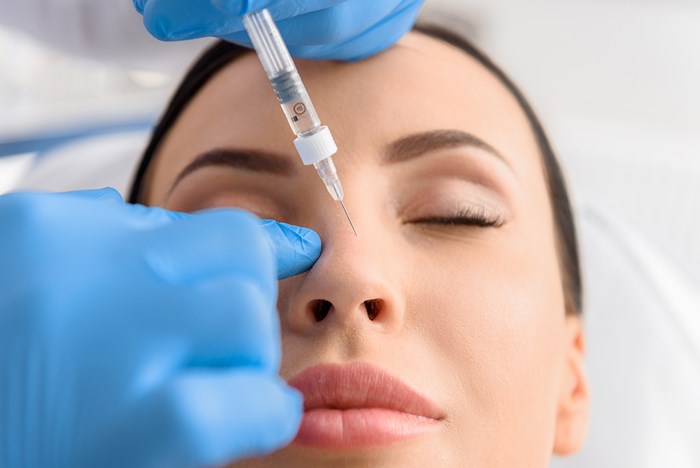Liquid Rhinoplasty - Abu Dhabi - Dubai
Liquid rhinoplasty, also known as non-surgical rhinoplasty or non-surgical nose job, is a cosmetic procedure that involves using injectable fillers to alter the shape or appearance of the nose without the need for surgery. It is a non-invasive alternative to traditional rhinoplasty, which is a surgical procedure for nose reshaping.
During a liquid rhinoplasty procedure, a qualified medical professional, such as a dermatologist or plastic surgeon, will use dermal fillers, typically hyaluronic acid-based fillers, to modify the nose's contours. The fillers are injected strategically into specific areas of the nose to achieve the desired aesthetic results.
The procedure is typically performed under local anesthesia, and it usually takes about 15 to 30 minutes to complete. The results are visible immediately, although there may be some swelling or bruising that can take a few days to subside. The effects of liquid rhinoplasty are not permanent and can last from several months to a couple of years, depending on the type of filler used.
Liquid rhinoplasty can be used to address a variety of cosmetic concerns, such as:
- 1. Correcting nasal asymmetry: Fillers can be used to balance out uneven or asymmetrical features of the nose.
- 2. Smoothing nasal bumps or humps: By strategically injecting fillers around a bump or hump on the nose, it is possible to create a smoother profile.
- 3. Lifting the nasal tip: Fillers can be used to elevate a drooping or downturned nasal tip, giving the nose a more defined and lifted appearance.
- 4. Correcting minor depressions or irregularities: Fillers can be used to fill in minor depressions or irregularities on the nose, improving overall symmetry and smoothness.
It's important to note that liquid rhinoplasty has its limitations. It cannot reduce the size of the nose or make significant structural changes. Surgical rhinoplasty is still the preferred option for those seeking more extensive modifications to the nose.
If you're considering liquid rhinoplasty, it's essential to consult with a qualified medical professional who can assess your individual case, discuss your goals, and determine whether you are a suitable candidate for the procedure. They will be able to provide you with more specific information regarding the potential risks, benefits, and expected outcomes based on your unique circumstances.

